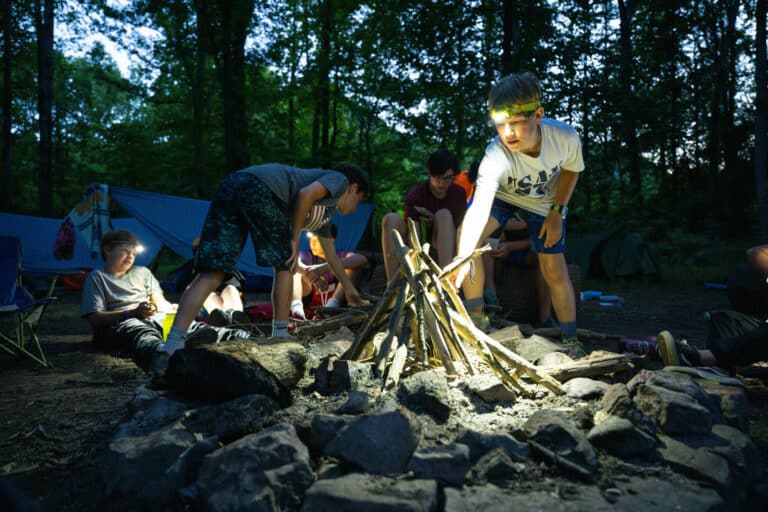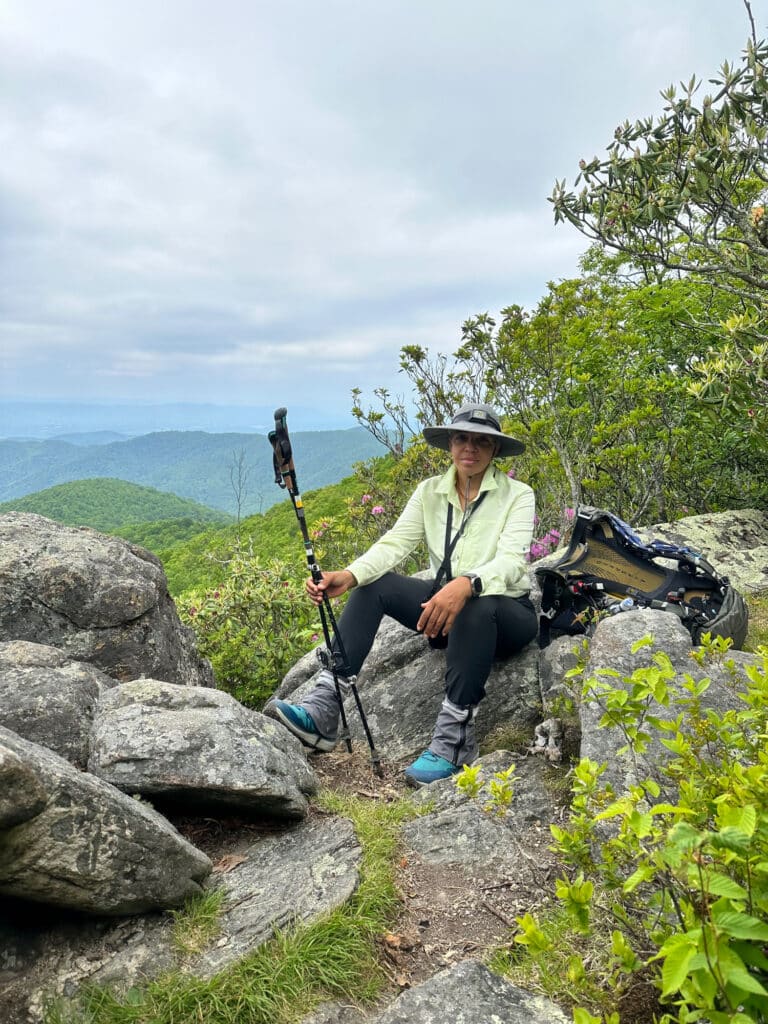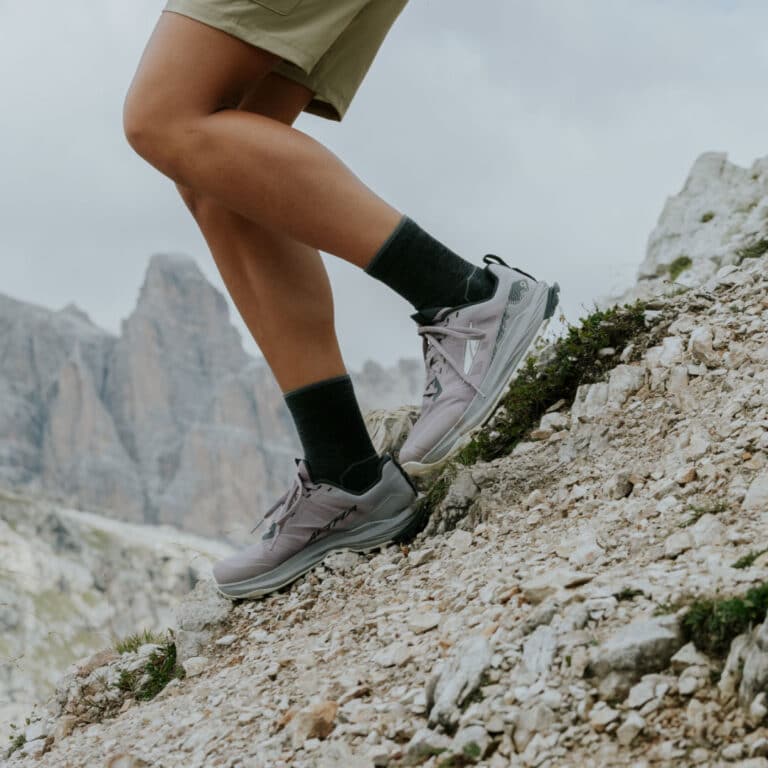How paddlers, climbers, and other members of the outdoor community sprang into action after Hurricane Helene devastated western North Carolina
“I saw some pretty devastating things,” said Andrew Wilmot, a swift-water rescue instructor for the Nantahala Outdoor Center. On September 27, violent floodwaters related to Hurricane Helene were sweeping across western North Carolina. Wilmot was asked to fill a spot on a search and rescue team heading north to the swollen Pigeon River.
“When the Pigeon was cresting, it felt like an earthquake with the boulders tumbling,” he recalled. During their response, the team worked along shore and entered the rising waters to rescue trapped people. Sadly, they couldn’t reach everyone.
“People washing away in cars,” Wilmot said about the horrific things they witnessed that day. “People drowning. People losing everything.”
When Wilmot returned home to Bryson City, about a half-hour drive from the path of destruction, he wanted to do more. Given the intensity of the storm, he realized there were residents across the stricken areas who needed immediate help. There were widespread power outages. Tap water wasn’t flowing. Homes, vehicles, and possessions were destroyed in places. With cellular and internet communications down, there was no way to contact loved ones or coordinate help. So Wilmot decided to act.
“I pulled the trigger and rented a U-Haul,” he explained. Wilmot spent the weekend shuttling out to unaffected towns like Franklin, N.C., and Clayton, Ga. He purchased drinking water and food and collected donated provisions. Then he drove into devastated areas around flooded rivers, threw open the rear door, and handed things out.
Wilmot’s neighbor, a firefighter in the affected town of Lake Junaluska, was able to arrange access to an official supply depot. When cell and internet service was restored that weekend, Wilmot set up a GoFundMe donation page called Help on the Way. He reached out to friends who wanted to get involved. Step by step, a solo response was turning into a grassroots effort.
Expanding Efforts
“As soon as I saw someone had a direction, I jumped on it,” said Dan Dixon, a long-time paddling instructor at NOC. After several days with almost no communication, yet knowing people were at risk, he was feeling frustrated.
Once connected, Dixon learned that Wilmot had developed several infections during his grassroots response. He’d gotten cuts on his elbow and foot and debris in his eye from the muddy floodwaters of the Pigeon River. Clearly, the grassroots responder could use some help.

By that point, area businesses and churches were serving as impromptu supply depots. On October 3, Dixon headed over to Innovation Brewing in neighboring Jackson County, which had recently started canning drinking water instead of beer. He readied the supplies to speed up loading when Wilmot arrived.
Gradually, more friends teamed up with Wilmot. Some focused on finding water sources to fill the U-Haul. Others focused on food, clothing, and household items. People took turns traveling with Wilmot to make deliveries in the affected areas.
In Clyde, N.C., on October 4, the Help on the Way team departed from a church distribution center with the U-Haul fully loaded. Then Wilmot took a wrong turn toward the river, and they found themselves outside a home. Dixon began conversing in Spanish with a Latin American family. Their house was still standing, but the interior had seen several feet of flooding. Outside, the scene resembled what was happening throughout nearby towns.
“At every house, there’s an eight-foot-high pile of debris,” said Dixon. “Gray, dingy mountains of furniture, mattresses, electronics, and garden supplies.”

Like other residents, the family had lost all their possessions. Elsewhere, entire neighborhoods were covered in inches or feet of thick mud. Encounters like this led Wilmot, with a team now numbering eight, to expand their collection efforts to recovery items. Oil burning lamps. Propane stoves. Generators. Shovels. And mattresses for people like the family in Clyde.
Impromptu Hubs
“We never really closed the doors that weekend,” said Luke Walden. He and Chelsea Brinton are local climbers and co-owners of Innovation Brewing in Sylva. Unlike the surrounding region, the taphouse regained internet access late on the night of September 27. So, they stayed open and became a hub for residents trying to contact family and friends.
“Monday morning is when we decided,” said Walden. “The best way to get water to town was to can it.”
They started with two pallets—just under a thousand cans of drinking water. Using Walden’s pickup truck, they drove the pallets over to Asheville, where the donation was well received. So, they went back to the brewery and canned four more pallets for donation and pickup by responders.
Around this time, a guest in the taproom approached the co-owners. She’d just read a Facebook post from a local volunteer named Amy Medford who was searching for an interior space around Sylva. The hope was to establish an impromptu distribution hub for donated supplies. The brewery co-owners offered an interior event space, at their Dillsboro location, called the Greenhouse.
Organizing Supplies
“I fell ass-backwards into this,” said Amy Medford, a resident of Franklin, N.C.
Avid paddlers and outdoor adventurers, her family had relocated to the mountains of western North Carolina about two years ago. After fortunately dodging the storm, she’d noticed numerous posts by Facebook friends trying but failing to contact residents in the affected regions. So she and her husband began driving around trying to locate certain individuals.

When Medford saw that Wilmington Response, a disaster relief nonprofit organization, was seeking volunteers, she responded immediately. Her initial task was to set up a distribution hub. On September 30, she went to Innovation Brewing to meet with Walden and Brinton.
Soon, the Greenhouse was filling up with donations arranged by other volunteers. Medford evaluated and organized these supplies for distribution. The co-owners and brewery regulars helped load goods onto volunteer vehicles, like Wilmot’s U-Haul or Walden’s pickup. Off they went to towns in the affected area, sometimes checking on new spots to gauge their situation. Back at the brewery, Medford kept track of reports from returning volunteers, who shared what was needed and where. While the organizational response from local, state, and federal agencies expanded, the need for grassroots efforts remained.
Some small towns were cut off by muddied or damaged roads. So, volunteers came forward with off-road vehicles that could make the trip. Eventually, Innovation’s Greenhouse was overflowing. So, Medford and a growing team expanded into a warehouse in nearby Sylva, N.C.
As relief efforts gradually shifted to include recovery and rebuilding, the team gathered and distributed buckets, work clothes, and rubber boots. Personal protection equipment included gloves, masks, and Tyvek suits. Workers in the affected areas were clearing mud deposits that some feared were toxic due to pollution carried by floodwaters.
“It’s really neat to see the team effort,” Medford said. “These are people that will just do what needs to be done, because they want to help their neighbors.”
Cover photo by Amy Medford








